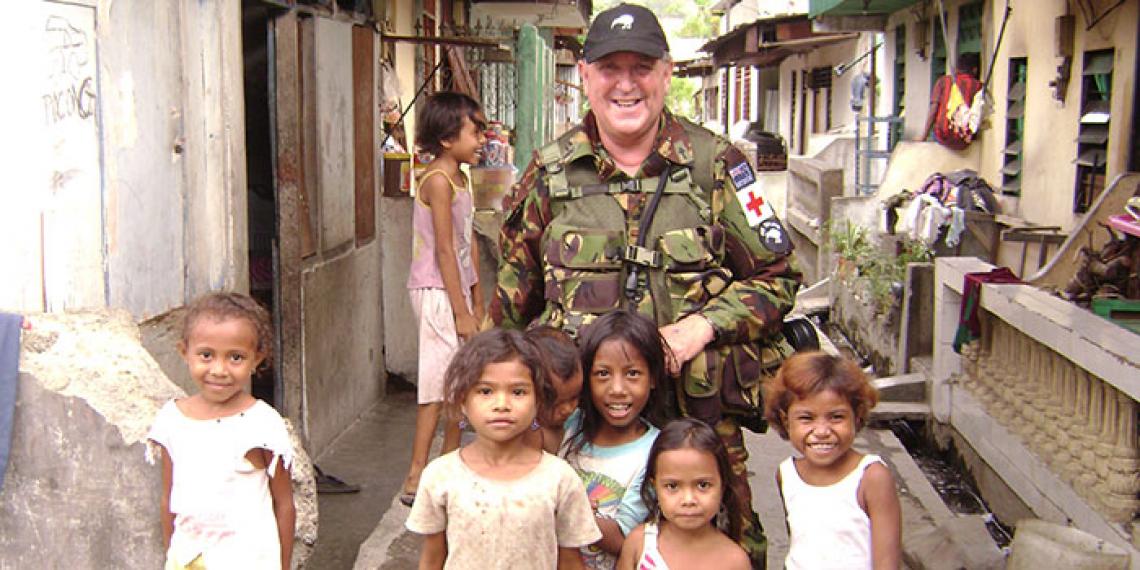You are here
Walking alongside soldiers

It was [Major] Peter Savage who knocked on my door and said, ‘How would you like to do this [military chaplaincy]?’ I was only going to do three years and 20 years later, here I am still. I prayed about it and felt that’s what God wanted me to do. I felt people in the military need God, especially when it’s tough. It’s an old saying: ‘there are no atheists in fox holes’.
As a military chaplain, you do prayers on parade and chapel services on base. I’ve served at Waiuru and Burnham and have led services in the field with Mount Ruapehu behind. at was special. The military is very respectful to the chaplains; they always include you in anything that’s going on and the soldiers are respectful, too. Anzac Day is very important; a chaplain is always asked to say prayers. I do a service every year in Auckland on Anzac Day, and Armistice Day for the battalion I started with.
Chaplaincy is a matter of walking alongside the soldiers. they start to realise you’re one of the guys but that you have a belief in God that helps you get through life. A chaplain needs a sense of humour, without that he’s just a boring person. I learnt very quickly never to get into a group argument. If someone raised something controversial I would talk to them one-on-one, because soldiers like to wind you up … but not in a bad way.
I served in East Timor in 2008. There was the welfare side, one-on-ones with soldiers. The commanding officer (CO) might know a soldier who’s homesick, someone might get a ‘dear John’ letter, or a family member passes away and they can’t get home for the funeral, so the chaplain goes to try and help.
I’d go on patrol with soldiers, and because they were peacekeeping you met all the children. I had a kiwi stamp and the kids would line up and I’d give them a stamp on the back of the hand. You sort of relax, but you never know what’s going to come out of the bush or from behind a building. I did night duty in the communications container and if someone rung in to say there was trouble somewhere I’d have to run and wake the CO.
I’d do services on base in Dili. When we first got to East Timor I told a group of soldiers, ‘I’m not religious; religion can be about anything—Christianity is a belief in God our creator.’ And I said, ‘We’ve got some time to unpack that if you’re interested.’ One of the soldiers said that made him think about where he was as a Christian. A group of soldiers came to chapel and said, ‘We’re Christians and we will support you.’ They came out on ‘church patrol’, when we’d go to different churches around Dili.
Quite a few Salvation Army officers have been military chaplains. We had officers on deployment during World War I and II, during the Korean War, and Major Colin Mason [another serving Salvation Army chaplain] was deployed to Afghanistan.
We’re recruiting Salvation Army offi cers to be chaplains at the moment, and I’d love to talk to any interested officers.
by Major Hylton Froggatt (c) 'War Cry' magazine, 18 April 2015, pp9.
You can read 'War Cry' at your nearest Salvation Army church or centre, or subscribe through Salvationist Resources.